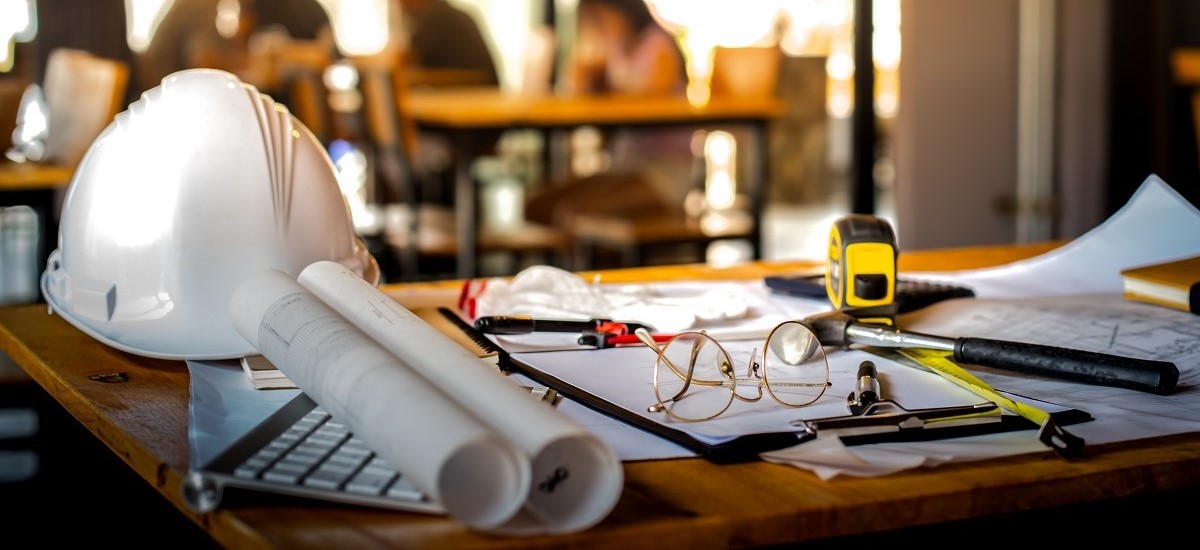How much does it cost to build a house in Poland?
How much does it cost to build a house in Poland as a UK expat? Find out in our essential guide, covering everything you need to know.

Fancy taking on a renovation project overseas, or found the perfect plot of land to build on? If you’re able to navigate local planning laws and building codes, manage your finances and complete the work - you could end up with your dream holiday home.
Around 1.5 million Brits are estimated to own a property overseas,1 so you’ll be in good company.
In this guide, we’ll run through everything you need to know about renovating or building a house abroad. This includes info on getting an overseas mortgage, finding suitable land, understanding local planning laws and finding the right professionals to work with.
And as you’ll undoubtedly need to send money between countries while managing your project, we’ll also show you how to avoid losing out to currency conversion - using clever solutions such as the Wise account.
It’s easy to understand why you might be tempted to build a house overseas. Who would turn down the chance to create their dream house, in the perfect location? It could even work out cheaper, depending on the cost of living and property prices in your chosen destination.
There are lots of reasons you might be considering building a house abroad. It could be to live in, or a holiday home to help you escape the cold UK winters. Or you might be interested in renting it out to earn some extra income.
Now, let’s run through a checklist of the steps involved in building a house abroad.
The first challenge is to find a suitable plot of land to build on. Not all countries will sell land to foreign buyers, and in some cases you’ll need to be a resident in order to buy either property or land.
For example, you can buy property in Switzerland but only if you have the right permit. And to buy land to build on, you’ll need a separate permit.
Other countries have restrictions on what kind of land you can buy. When researching land and property in Morocco, for example, you'll find that foreigners can buy land but only if it isn’t designated for agricultural purposes.
Similarly when buying in Dubai, you can only buy in zones designated for foreign buyers. But you can buy land as well as pre-built homes.
When it comes to finding land to build on, a specialist estate agent could be your best bet. Choose someone with expert knowledge in the country you’re interested in - they can help you find a plot of land that suits your needs and budget.
At this stage, it’s a good idea to prepare your finances. You have a few different options for funding your overseas building project:
Before you do anything else, it really is vital that you look into local planning laws. You’ll need to apply for the relevant permissions and permits as soon as possible, as it could take a long time for them to be approved. This could hold up your project and lead to expensive delays.
It’s always recommended to work with a local planning expert, who can help you submit your application. They can help with language translations, advise you on the conditions you need to meet and prevent you from making any costly errors.
Alongside planning permission, there may be other building regulations or municipal/local authority rules that affect your project. This is another area a local conveyancer, solicitor or planning expert can help you with.
Now it’s time to start finding those key contractors who will help you turn your plans into your dream home. You’re likely to need an architect, and possibly a structural engineer too. And just as importantly, you’ll need a building firm to actually complete the construction.
Here are some tips on finding local tradespeople to work with:

To help you prepare for your building project, here are some key things to consider.
When it comes to building overseas, there’s no such thing as too much research. Find out everything you can about the country’s laws as they apply to building property, including the rights and restrictions on foreigners.
You need to understand all you can about how large a property you can build on your plot, local restrictions on what you can build and how projects need to be conducted.
Working with an expert in local planning and building laws will be essential.
Robust planning is the best way to complete your project on time and within budget, and avoid any major setbacks.
Create a detailed roadmap and timeline for the project, along with a comprehensive and accurate budget (based on real prices of materials and labour in the country you’re building in).
It’s worth spending more time with your architect, to make sure all the plans are completely up to scratch before spades hit the ground.
Do you want to project manage the build yourself, or prefer to trust a local expert to manage it for you?
It could be beneficial to be on-site overseeing the project, making sure everything is exactly the way you want it - and that work is up to standard. However, you’ll need the right experience in building to fill this role, and you’ll need to be fluent in the local language too.
Alternatively, you can oversee the project remotely, with the assistance of a local on-site project manager. This can be preferable for first-time builders or those not fluent in the local language, but make sure you work with someone you completely trust.
Paying your builders, contractors and other professionals on time is crucial. But you also don’t want to be hit by unfair currency conversion fees as you pay international invoices.
It could be a good idea to open a multi-currency account ready for your project to begin.
The Wise account lets you manage your money in 40+ currencies and securely send payments all over the world at mid-market exchange rates for low, transparent fees*.
There’s even a dedicated solution for sending large amounts between countries quickly and securely.
Whether buying a property abroad or building one, there will always be fees and taxes to pay.
Here are some examples of what kinds of costs you’ll need to factor into your overall budget:
You might also want to look into what buying property abroad means for your UK tax obligations.
If you’re still based in the UK, you’ll need to figure out the best way to pay the fees and taxes above, as well as your builders and contractors.
Currency exchange rates will be a major factor. Send money with your bank and you may be losing out to poor rates and high fees, especially when sending large amounts.
But send money with Wise and you’re guaranteed mid-market exchange rates with no margin or mark-up, as well as low, transparent fees*.
You can use our handy converter tool below for live rates:
A full-scale building project isn’t for everyone. Renovating a property can be much more appealing, especially if the purchase price is right.
If you can snap up a fixer-upper, you could save a fortune compared to buying a pristine property in the same area. You can create more value by doing up a property compared to the cost of renovation work, especially in areas where labour costs are lower.
There are a few ways you can renovate property overseas, starting with dedicated schemes and incentives such as:
Here’s a look at the steps involved in renovating a property abroad.
Buying a renovation project is a little different compared to buying a fully finished home.
You’ll need to get a full survey carried out to identify any major structural issues, and perhaps ask a local builder to give you an initial quote for renovations and repairs.
You need to do your sums carefully, making sure the purchase price along with the cost of renovation works represents good value for money.
To find a property to buy, you might want to start your search at overseas property websites and agents such as:
Alternatively, you can use a local agent to find a property for you.
You might need to apply for an overseas mortgage to finance your property purchase. You could even inquire whether your chosen lender offers funding for renovations. Otherwise, you’ll need to have savings or raise funds in another way such as remortgaging your house in the UK.
Using the results of your building survey and perhaps some plans from an architect (for more ambitious projects), you can create a detailed plan for your renovation works. This should include a timeline for the works and a detailed budget based on accurate costs of materials and labour in the local area.
You might need to apply for planning permission or permits to carry out your renovations, especially if you’ve bought a listed or protected building (or you’ve purchased property in a conservation area). Check this out and apply for the relevant permissions as soon as possible.
As with building a property, it’s a good idea to start searching for builders and contractors at accredited trade bodies - just like the Federation of Master Builders (FMB) in the UK.
Get several quotes for the work, and be extra cautious about super cheap quotes - they could be too good to be true.
Here are a few crucial things to bear in mind when renovating a house abroad.
Just like in the UK, some properties overseas have a protected or ‘listed’ status. You need to know about this before purchase, as it could mean restrictions or conditions on what you can change about the property.
Some renovation works may require planning permission, such as changes to balconies, exterior works and extensions. Find out and apply as soon as possible to prevent any delays to your project.
A detailed and realistic schedule for renovation works can help everything run smoothly, and prevent any delays.
A typical schedule may include the following stages:
Cowboy builders aren’t just a concern in the UK. Unfortunately, you’ll find them in other countries too.
To avoid sub-standard work, miscommunication and potentially getting ripped off, bear the following tips in mind:
Whatever else you do when researching a fixer-upper to buy, it’s essential to get some sort of building survey or inspection carried out. A property that you may think only needs a lick of paint could have serious structural issues or an insect infestation.
A key thing to check out before starting work is whether you may need indemnity or liability insurance for the works. Speak to a local solicitor or professional to find out how it works and what your obligations are.
No renovation project runs exactly to plan, and amendments are completely normal. Schedules and prices can fluctuate, and your contractors may find something unexpected when they start stripping out the interior.
So, be prepared for change order fees (where you pay more to upgrade specifications or overcome a problem) or amendments to the original contract.
Just like with building a home, you may have to pay a number of fees and taxes when renovating a home abroad. These include:
It’s worth researching whether you qualify for any exemptions. For example, when buying property in Ireland, you can write off the cost of renovations of your rental property over several years against your rental income, but only if the work is done by a builder who is registered for VAT (sales tax).
You’ll also need to work out the best way to make payments to another country from the UK, using solutions such as Wise to get the best exchange rates.
If the renovations are relatively minor (i.e. painting and decorating) and you have the right DIY skills, there’s no reason you can’t carry out renovations on overseas property yourself. But for more significant improvements, it’s usually best to call in the experts.
Unfortunately, sometimes things do go wrong when building or renovating property abroad.
If you’re involved in a dispute with a contractor or think you’ve been a victim of fraud, the first thing to do is consult a solicitor. They can advise you of your rights, and what action you can take.
You might also want to have a look at UK Government guidance for buying property abroad.
The UK’s Foreign, Commonwealth & Development Office (FCDO) can't get involved in private legal issues abroad, but has lots of resources including English-speaking lawyers, interpreters and translators.
You’ll have lots of bills to pay when building or renovating property abroad, from planning permission application fees to contractor invoices.
Open a Wise account at the start of your project and you’ll be able to quickly and easily send money between the UK and your chosen country. This is a good way to keep currency exchange costs down, and make sure everyone gets paid on time.
There’s even dedicated support for large amount transfers, essential when you’re buying land or property, or paying large bills.
You may also be interested in our following guides:
Sources used:
1. Charles Stanley - A case study: buying a property abroad
Sources last checked on date: 16-Aug-2024
*Please see terms of use and product availability for your region or visit Wise fees and pricing for the most up to date pricing and fee information.
This publication is provided for general information purposes and does not constitute legal, tax or other professional advice from Wise Payments Limited or its subsidiaries and its affiliates, and it is not intended as a substitute for obtaining advice from a financial advisor or any other professional.
We make no representations, warranties or guarantees, whether expressed or implied, that the content in the publication is accurate, complete or up to date.

How much does it cost to build a house in Poland as a UK expat? Find out in our essential guide, covering everything you need to know.

How much does it cost to build a house in Greece as a UK expat? Find out in our essential guide, covering everything you need to know.

Read our comprehensive guide to buying a house abroad, including how to arrange finance for overseas property purchases.

Read our roundup of 8 of the best places to buy land in the world as a Brit, looking at average land prices, buyer’s costs and more.

Read our guide to selling property in India and bringing money to the UK, covering taxes, transfer methods and other essential information.

Read our essential guide to investing in US farmland from the UK, including rules on foreign land ownership, average prices per acre, and much more.